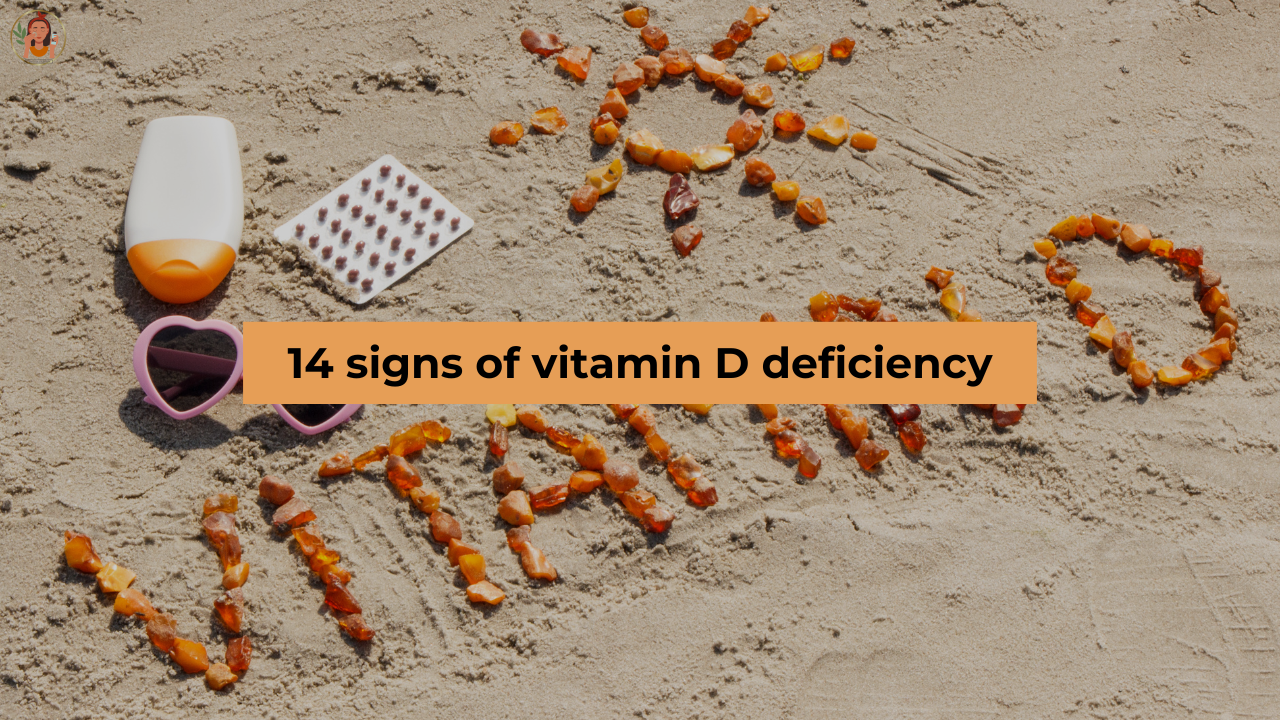14 signs of vitamin D deficiency

Vitamin D, often referred to as the “sunshine vitamin,” plays a vital role in maintaining overall health. It supports bone strength, immune function, and even mental well-being. However, many people are unaware they might have a deficiency. Here are 14 common signs that could indicate you’re not getting enough vitamin D:
1. Fatigue and Low Energy
Chronic fatigue or feeling tired all the time may be a subtle but significant indicator of vitamin D deficiency. This vitamin is essential for energy production and cellular function.
2. Frequent Illness or Infections
Vitamin D boosts immune function, helping your body fight off viruses and bacteria. If you’re falling sick often, especially with colds or respiratory infections, low levels of vitamin D might be to blame.
3. Bone and Back Pain
Vitamin D is crucial for calcium absorption. A deficiency can lead to bone pain, back pain, or even more severe conditions like osteomalacia (softening of the bones).
4. Hair Loss
Severe hair loss, particularly in patches, can be linked to low vitamin D levels. It’s thought to play a role in hair follicle health.
5. Depression or Mood Changes
Low vitamin D levels have been associated with depression and mood swings. This vitamin influences serotonin levels, which affect mood regulation.
6. Slow Wound Healing
If you notice that cuts or injuries are taking longer to heal, it might indicate a vitamin D deficiency, as it helps in tissue repair and inflammation control.
7. Bone Loss or Weak Bones
A lack of vitamin D can result in decreased bone mineral density, increasing the risk of fractures or osteoporosis.
8. Muscle Pain or Weakness
Vitamin D deficiency can lead to muscle pain or weakness due to its role in muscle function and reducing inflammation.
9. Difficulty in Thinking Clearly (Brain Fog)
Cognitive issues, such as trouble focusing or memory problems, are sometimes linked to low vitamin D levels.
10. Increased Risk of Chronic Diseases
Long-term vitamin D deficiency is associated with chronic illnesses such as cardiovascular disease, diabetes, and certain cancers.
11. High Blood Pressure
Vitamin D helps regulate blood pressure. A deficiency could contribute to hypertension.
12. Seasonal Affective Disorder (SAD)
SAD, a type of depression occurring during darker months, is often associated with low vitamin D levels due to reduced sunlight exposure.
13. Sweaty Head
Excessive sweating, particularly on the head, is a classic symptom of vitamin D deficiency. This symptom is often noticed in infants as well.
14. Weight Gain or Obesity
Low levels of vitamin D can make it harder for your body to metabolize fat efficiently, potentially contributing to weight gain.
How to Address Vitamin D Deficiency
Get Sunlight
Spend 10-30 minutes in the sun daily, especially during midday when UVB rays are strongest.
Include Vitamin D-Rich Foods
Add fatty fish (salmon, mackerel), egg yolks, fortified dairy products, and mushrooms to your diet.
Take Supplements
If dietary intake and sunlight exposure are insufficient, consider vitamin D supplements after consulting a healthcare provider.
Routine Testing
Regular blood tests can monitor your vitamin D levels and ensure you’re within the optimal range